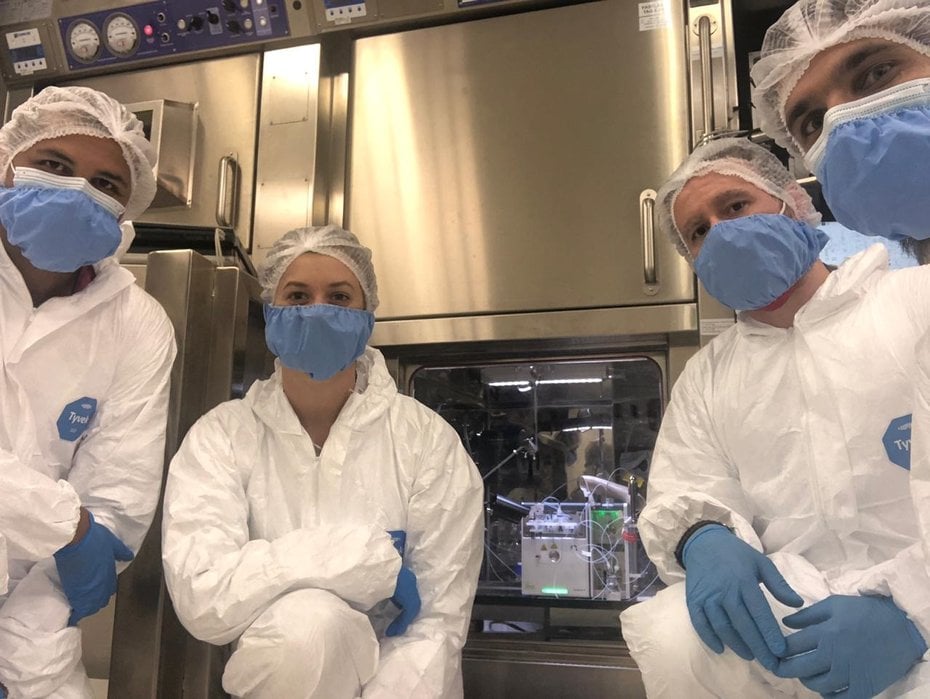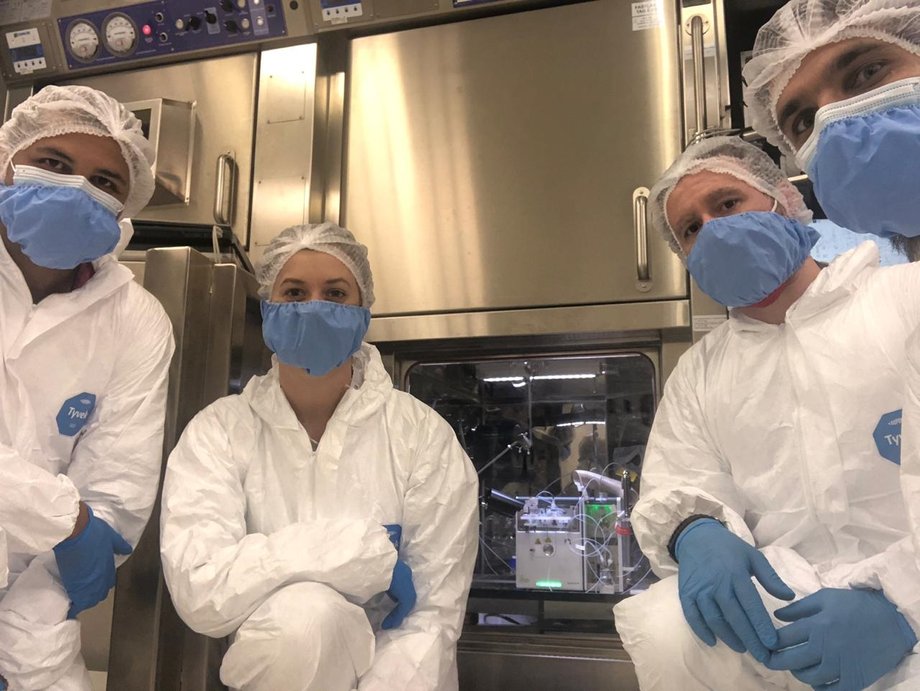InsCer produces new radiopharmaceutical for Alzheimer's Disease
 The first production of the new radiopharmaceutical Neuraceq, which marks the beta-amyloid plaques present in Alzheimer's Disease, was successfully performed at InsCer. The substance was produced as part of a partnership between the Institute, the R2IBF group and Life Molecular Imaging, the product developer.
The first production of the new radiopharmaceutical Neuraceq, which marks the beta-amyloid plaques present in Alzheimer's Disease, was successfully performed at InsCer. The substance was produced as part of a partnership between the Institute, the R2IBF group and Life Molecular Imaging, the product developer.
This radiopharmaceutical, which will be used in a clinical study scheduled to start in March 2021, is being produced in the IBA Synthera + equipment, and will be installed at the Institute during the project's development period. Subsequently, the equipment will remain in Brazil to continue the production of the radiopharmaceutical.
Bringing Neuraceq to Brazil was only possible thanks to the efforts of InsCer and the R2IBF group, which for several years have been working together to facilitate the population's access to new technologies in the field of Nuclear Medicine.
“We want to record our great thanks to the companies Life Molecular Imaging, IBA Radiopharma Solutions and DMI Representação Comercial. We only achieved this result because the work was done together ”, says Louise Hartmann, coordinator of the Radiopharmaceutical Production Center at InsCer.
Importance of radiopharmaceutical
The radiopharmaceutical Neuroceq is of paramount importance to society, as studies indicate that a portion of people with Alzheimer's is misdiagnosed. This radiopharmaceutical identifies whether beta-amyloid plaques exist in the patient's brain (Alzheimer's characteristic plaques), being an assertive marker in the diagnosis for this dementia. It is estimated that more than one million people in the country have Alzheimer's, a number that is expected to increase in the face of an aging population.

